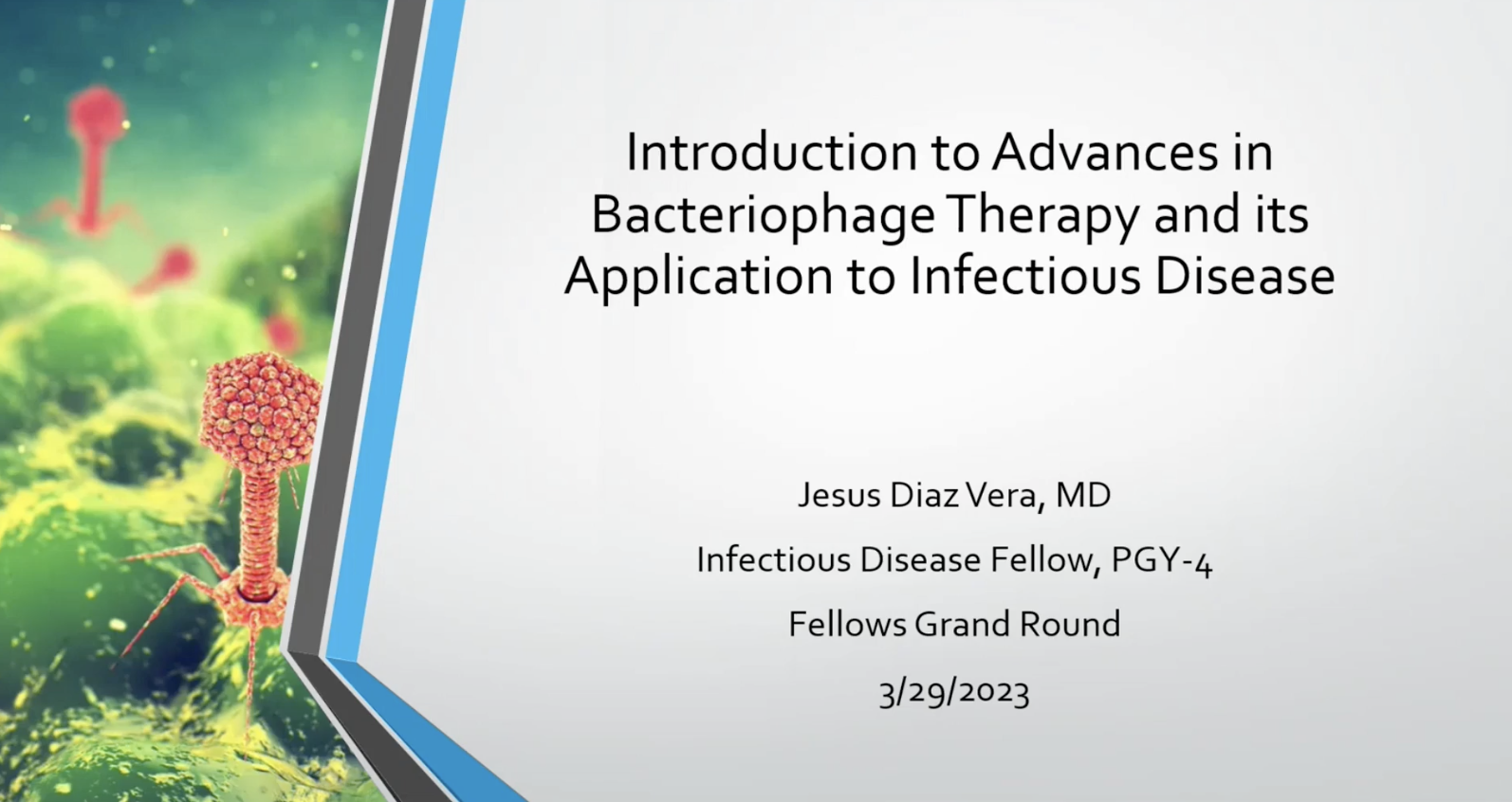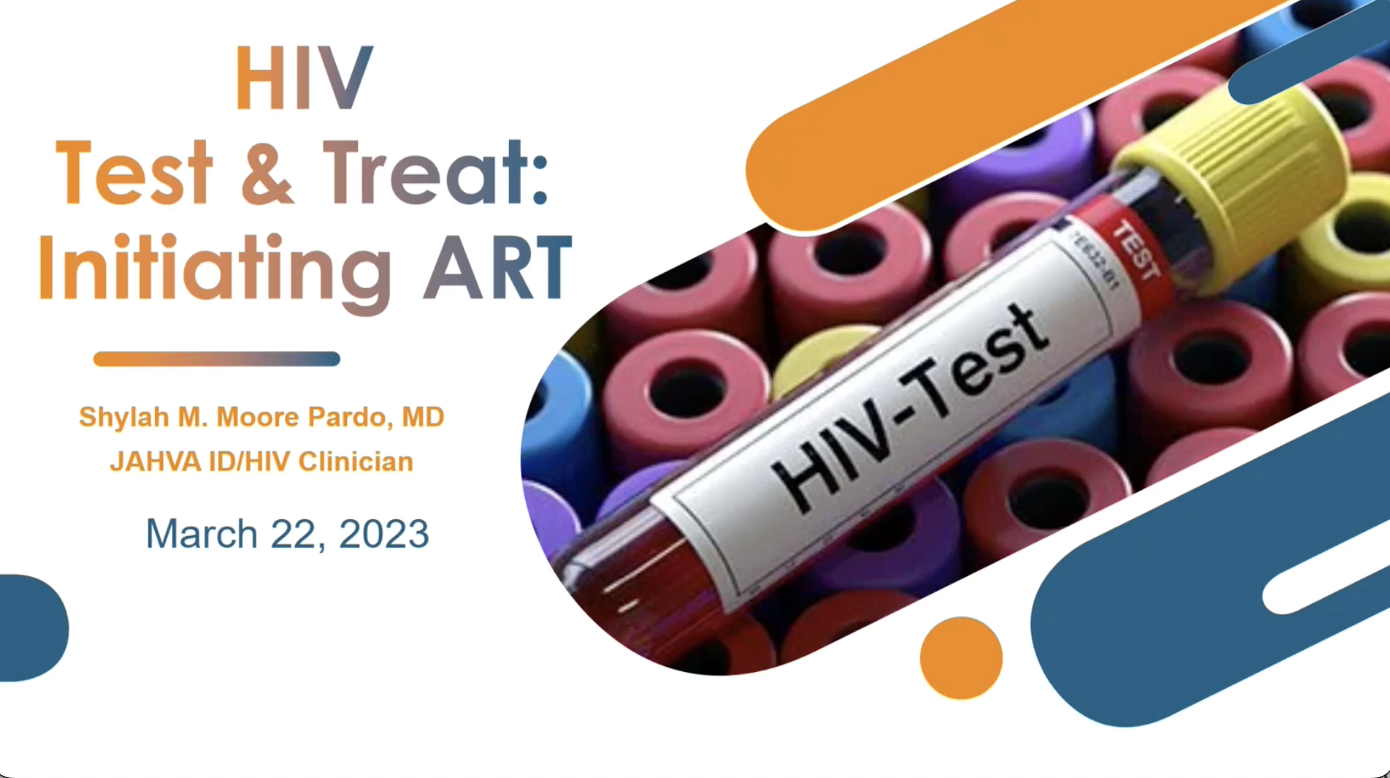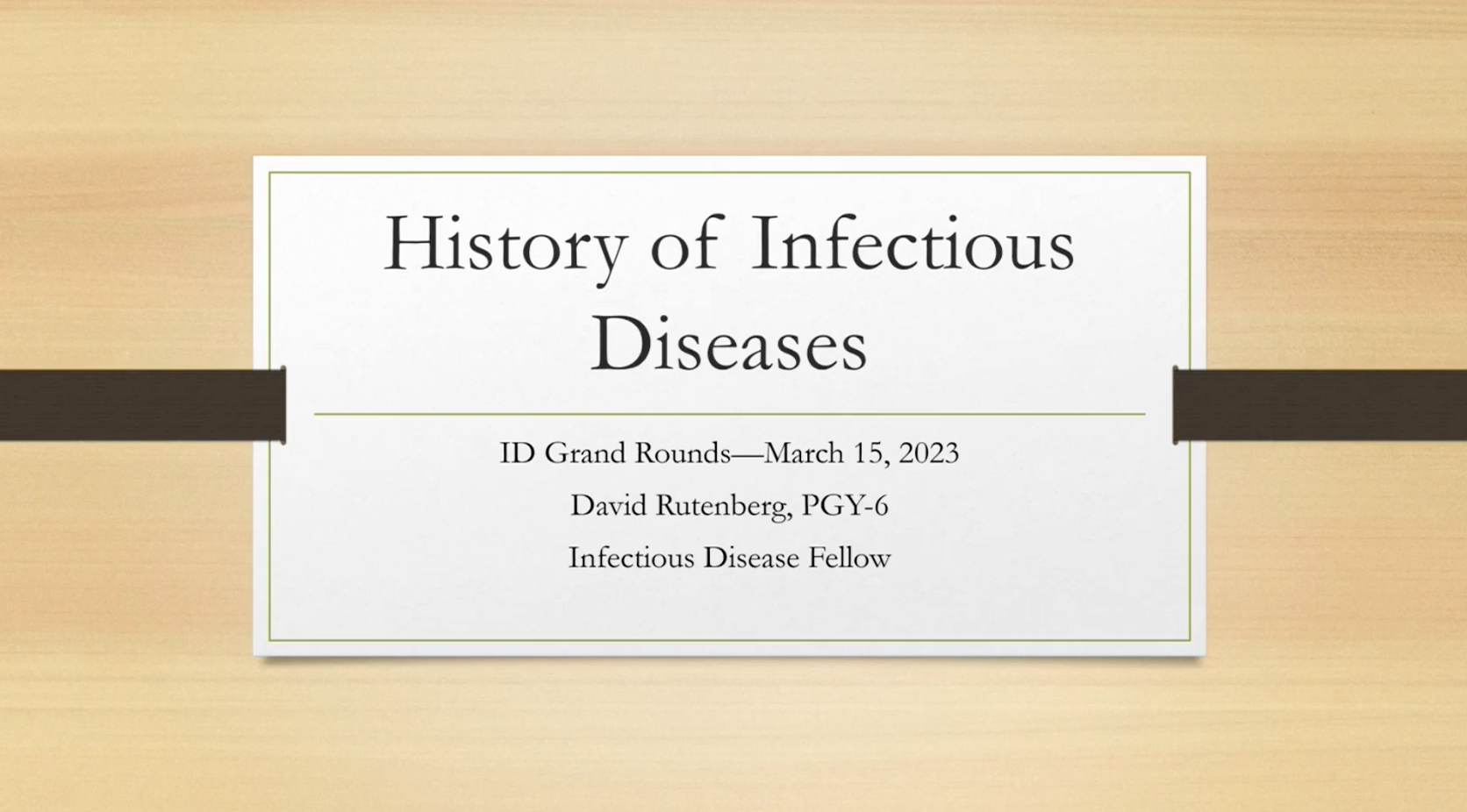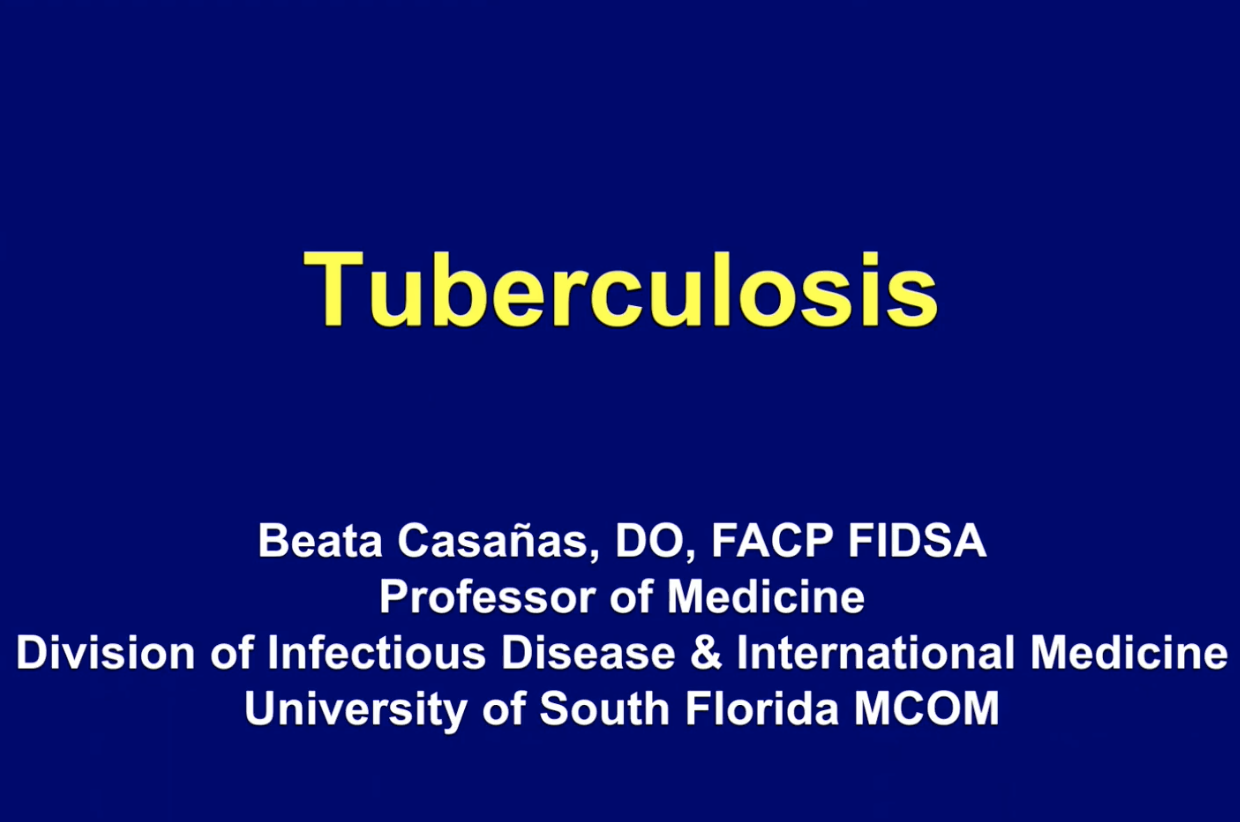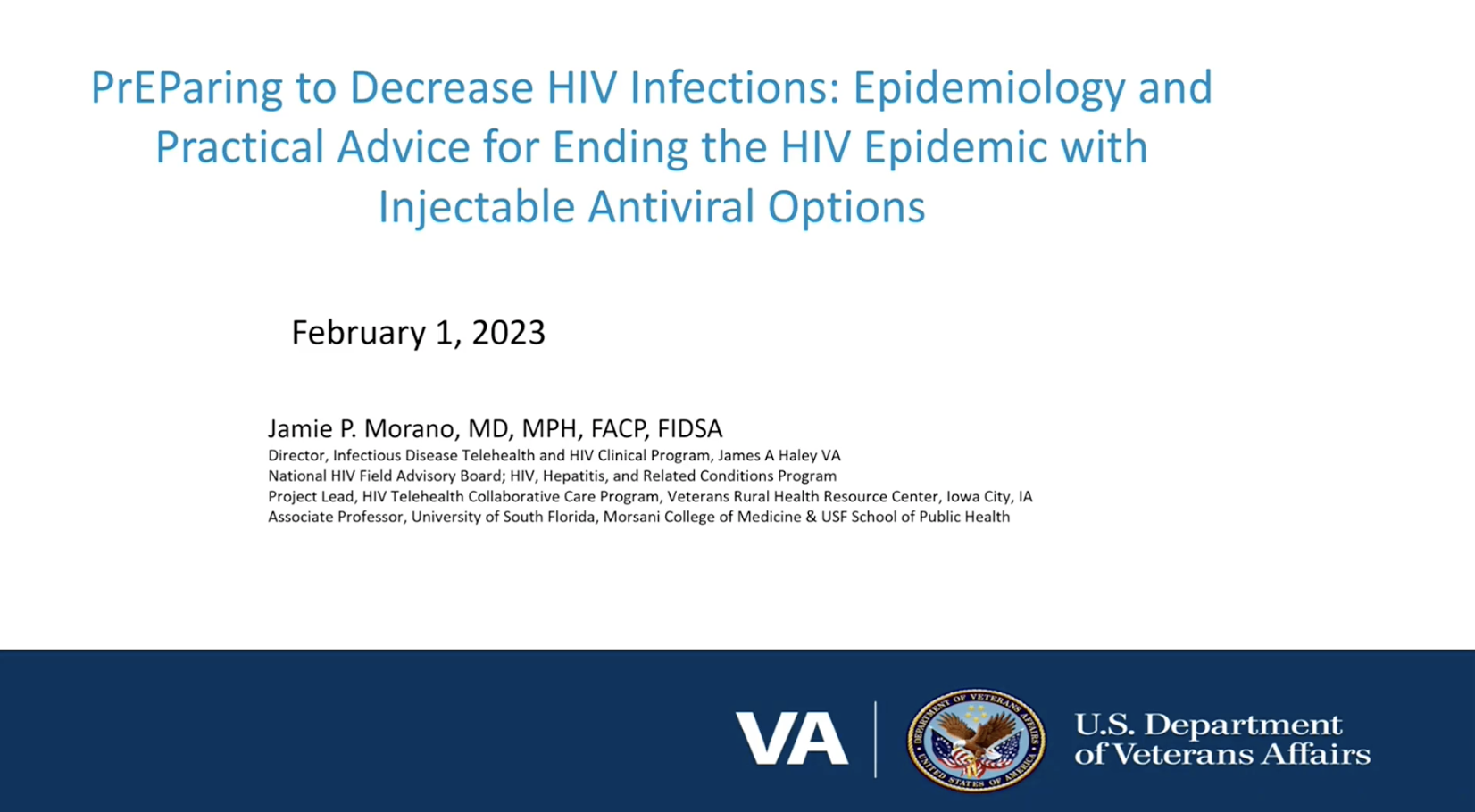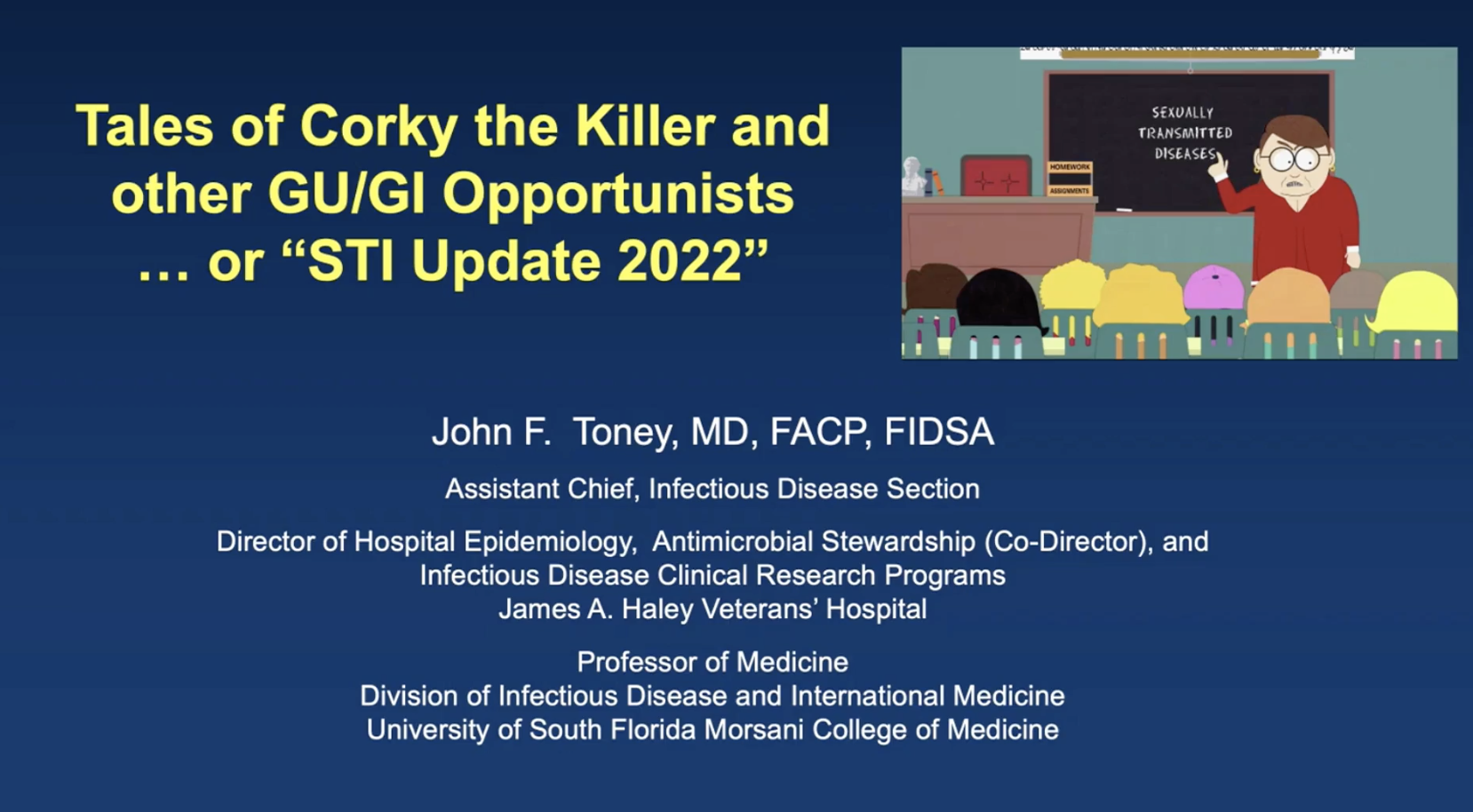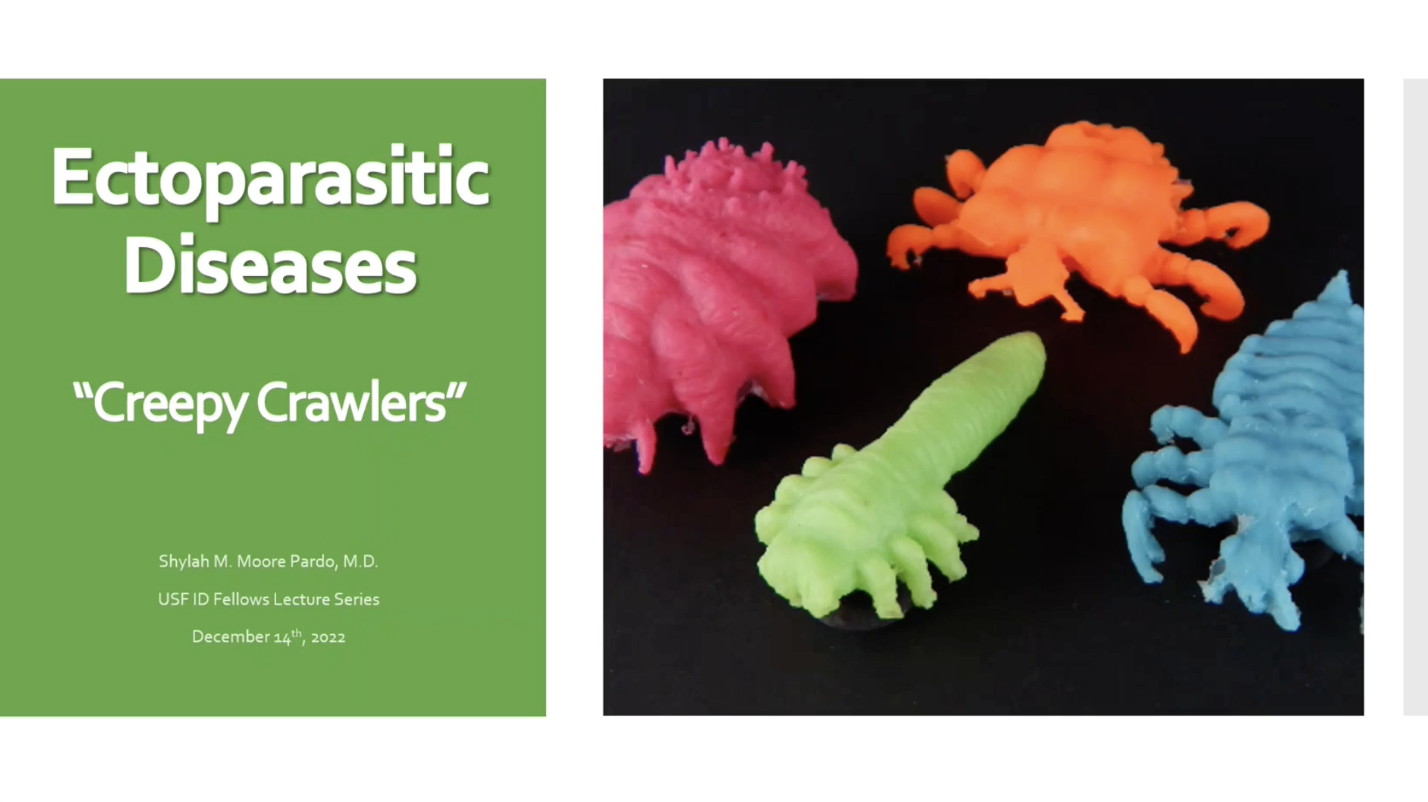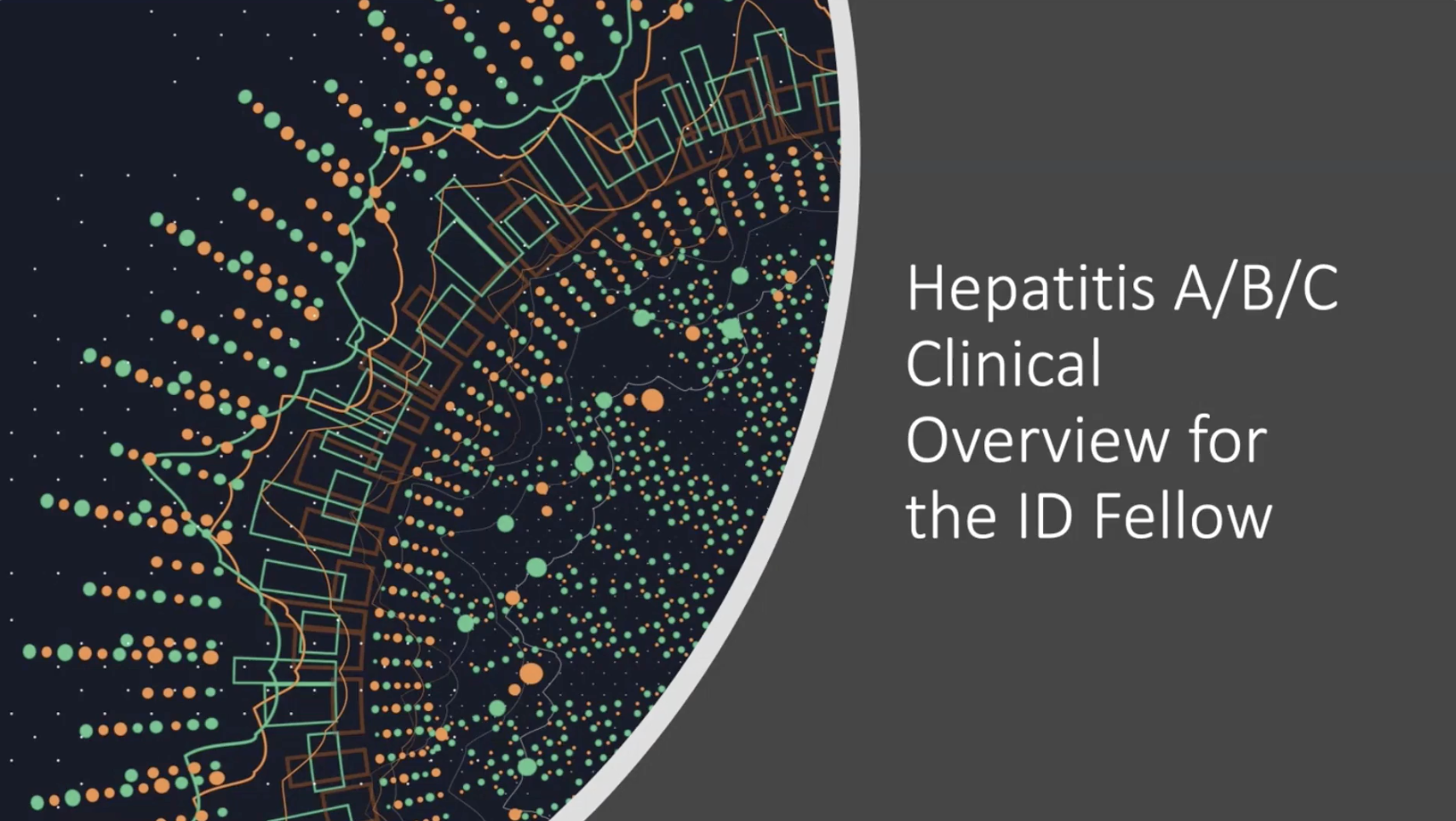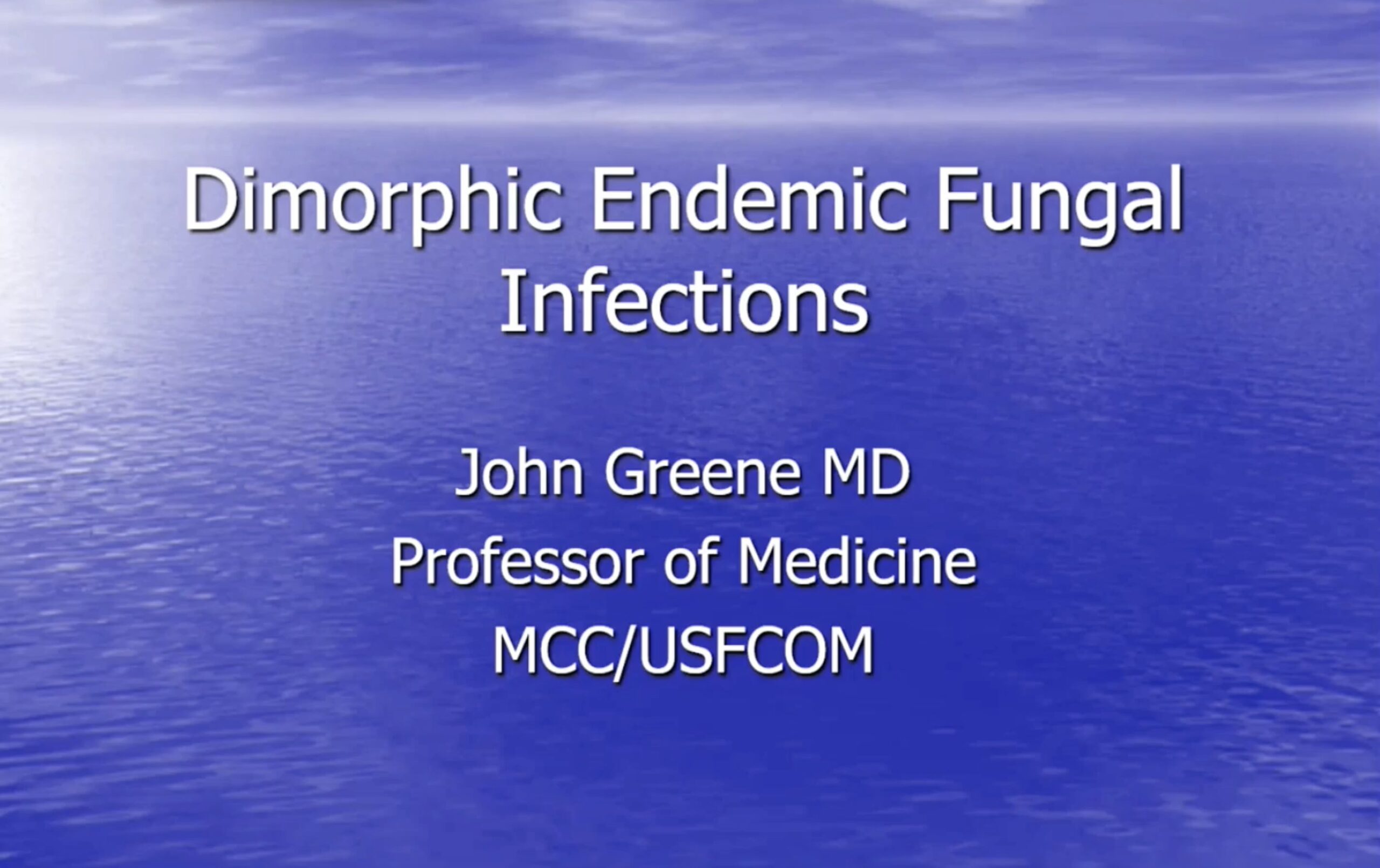Dr. Jesus Diaz, Infectious Diseases Fellow at the University of South Florida Division of Infectious Diseases, reviews the burgeoning anti-infective technology known as bacteriophage therapy. Bacteriophages are virions that have strong antibacterial properties. Dr. Diaz first reviews the history of bacteriophage therapy. He then reviews the morphology and anatomy of bacteriophages. Dr Diaz then differentiates the lysogenic versus lytic cycle and explains the role of bacterial transduction. The speaker then reviews the specifics of phage therapy. Lastly, Dr Diaz covers a few examples of the use of bacteriophage therapy in clinical practice.
Archives
HIV Test and Treat: Initiating Antiretroviral Therapy
Dr. Shylah Moore-Pardo, infectious diseases clinician at the James A Haley Veterans Hospital, reviews antiretroviral initiation in HIV positive patients. Dr. Pardo begins by discussing the interpretation of HIV test results. Next, she highlights several unique positive test scenarios. Dr. Pardo then reviews the characteristic serological patterns of acute HIV infection. The speaker then goes on to describe essential components of the initial HIV positive patient encounter. She then relates recommended test and treat strategies compatible with current guidelines. Lastly, she covers the next steps in management for future patient visits.
History of Infectious Diseases
Dr. David Rutenberg, senior Infectious Diseases Fellow at the University of South Florida Division of Infectious Diseases, presents a session chronicling some of the most significant historical milestones in ID history. Dr. Rutenberg begins by discusses Malaria’s origins, including its early interactions with humankind, as well as the discovery of its host and eventual therapeutic treatments. Next, the speaker covers Tuberculosis, including early strains, its rise through the the middle ages, and the modern recognition of TB attributed to Robert Koch. Moving on, Dr. Rutenberg discusses nontuberculous mycobacteria, specifically Leprosy, the scourge of the middle ages. Inherent in the history of Hanson’s disease was the tremendous stigma associated with the diagnosis, correct or incorrect. Dr. Rutenberg closes by covering Smallpox, the only one of the historical diseases of mankind that has been completely eradicated.
Tuberculosis Update
Dr. Beata Casanas, Professor of Medicine at the University of South Florida Division of Infectious Diseases, presents an update on tuberculosis. Dr. Casanas begins her talk by discussing the current epidemiology of tuberculosis. She then reviews tuberculosis transmission. Next, she discusses tuberculosis screening and the progression from tuberculosis exposure to active TB.
HIV Core Curriculum: PrEP Therapy and Injectables
Dr. Jamie Morano, Director of the Infectious Diseases Telehealth and HIV Clinical Program at the James A Haley Veterans Hospital in Tampa, FL, reviews pre-exposure prophylaxis for HIV as well as the newer long acting injectable antiretroviral options. Dr. Morano begins by discussing the epidemiology of HIV infection in the Southeast U.S., one of the highest prevalence areas for HIV. She then reviews the recent research trials associated with cabotegravir-rilpiverine (Cabeneuva) and important information regarding its use. Next, she discusses specific administration details at her hospital as well as injection techniques. Lastly, Dr. Morano covers PrEP indications and prescribing tips and how telehealth care can enhance care in PrEP, nPEP, HIV longitudinal care, STD treatment, sexual health, and general infectious diseases care.
Managing Beta-Lactam Allergies
Dr. Tiffany Ward, Infectious Diseases Pharmacist at the James Haley VA hospital in Tampa, FL, begins her presentation by reviewing the impact of beta-lactam allergies on individual patients and the healthcare system. She then discusses the classification system for the different types of hypersensitivity reactions. Next, Dr. Ward discusses the various dermatologic manifestations of an acute drug allergy. Dr. Ward then mentions the use of cephalosporins in patients with penicillin allergies. She goes on to explain how beta-lactam allergy testing is performed. Lastly, she relates the importance of updating antibiotic allergy information in the medical chart for effective anti-infective management and care.
Sexually Transmitted Infections Update 2022-23
Dr. John Toney, Professor of Medicine at the USF Morsani College of Medicine, presents this STI treatment refresher updated for 2022-2023. Dr. Toney begins by reviewing the new changes to the latest 2021 STI guidelines (updated from 2015). He next discusses Chlamydia and Neisseria, Chancroid and LGV. Next, he discusses syphilis. Topics discussed related to syphilis includes differentiating primary, secondary, and latent disease, diagnostic testing and treatment. Dr. Toney closes by discussing genital Herpes and Trichomoniasis.
Ectoparasitic Diseases
Dr. Shylah Moore-Pardo, Assistant Professor of Medicine at the Morsani College of Medicine, presents a review of parasitic diseases of the skin and soft tissues. Clinical syndromes discussed include pediculosis (head and body/pubic lice), scabies, bedbugs, myiasis, tungiasis, and cutaneous larva migrans. Syndromes with a geographic preference are associated with their locality of origin. The presentation is conducted in a case-based format, aiding in learning of the material.
Hepatitis A, B, and C Clinical Overview
Dr Todd Wills, Professor of Medicine at the University of South Florida College of Medicine, presents an overview of the management of viral hepatitis syndromes. Dr. Wills first discusses Hepatitis A, including its case definition, epidemiology, high risk groups, and vaccine target population. Next, Hepatitis B is introduced. Dr. Wills explains how to interpret serology test results, and specifies the high risk populations that require treatment. Next the speaker discusses the various antiviral agents available to treat patients who have Hepatitis B infection. Lastly, Hepatitis C is discussed, including the disease’s prevalence, treatment options, the importance of genotyping, and post treatment monitoring.
Dimorphic Endemic Fungal Infections
Dr. John Greene, Chief of Infectious Diseases at the Moffitt Cancer Center and Research Institute, reviews the epidemiology, clinical characteristics, and disease manifestations of several endemic fungal mycoses. Among the fungal organisms discussed includes, Histoplasmosis, Blastomycosis, Coccidioidomycosis, Paracoccidioidomycosis and Cryptococcosis.
Note: We apologize for some of the technical difficulties present in this presentation, including some obscured slides and the Zoom overlay panel along the top of the presentation window.
